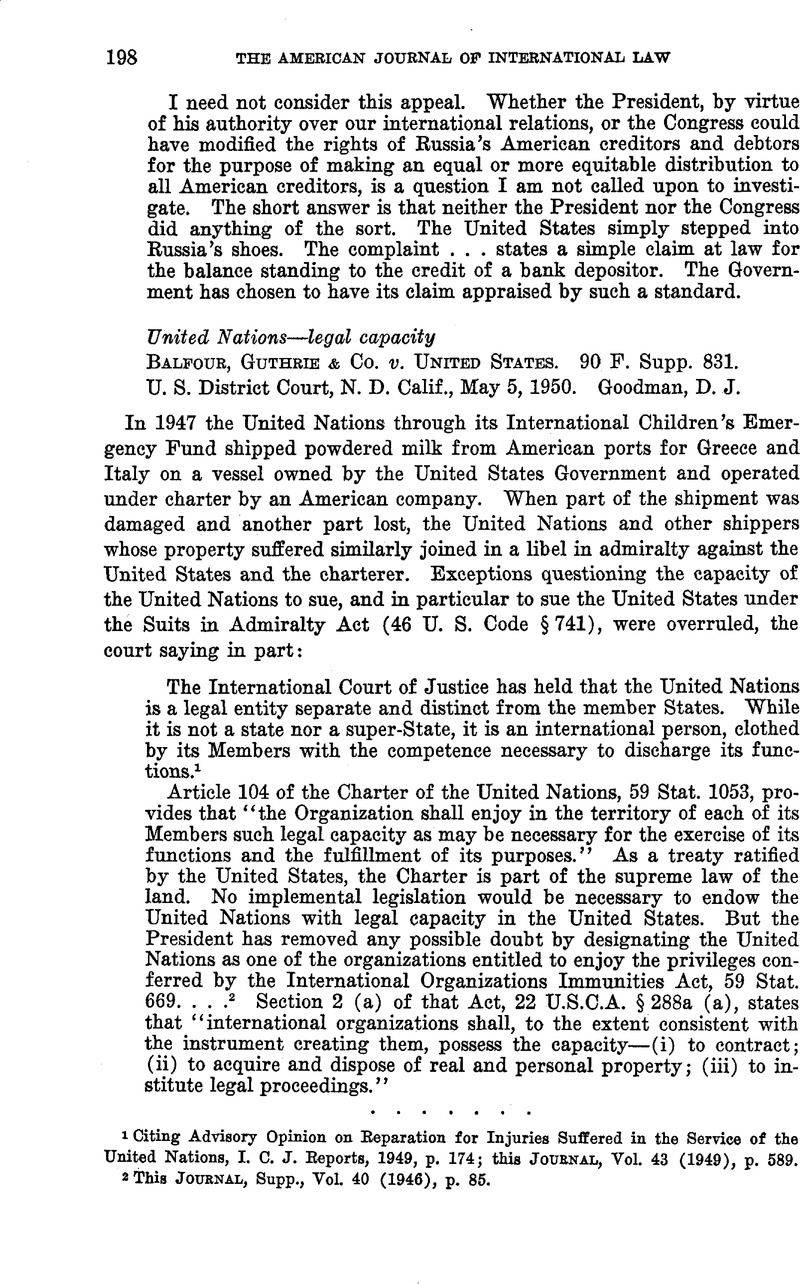No CrossRef data available.
Article contents
Balfour, Guthrie & Co. v. United States
Published online by Cambridge University Press: 20 April 2017
Abstract

- Type
- Judicial Decisions
- Information
- Copyright
- Copyright © American Society of International Law 1951
References
1 Citing Advisory Opinion on Keparation for Injuries Suffered in the Service of the United Nations, I. C. J. Reports, 1949, p. 174; this Journal, Vol. 43 (1949), p. 589.
2 This Journal, Supp., Vol. 40 (1946), p. 85.
3 Plaintiff’s capacity to sue as assignee of UNRRA was not questioned in United Nations v. Adler, 90 F. Supp. 440 (S. D. N. Y., May 18, 1950). In International Refugee Organization v. Republic S. 8. Corp., 92 F. Supp. 674 (D. Md., July 8, 1950), the court held that although the IRO had capacity to sue, it could not bring in a Federal District Court an action against a Panamanian corporation in which no “federal question” was involved. Jurisdiction based on “diversity of citizenship” was limited to cases between citizens of different States, or between citizens of a State and foreign states or citizens or subjects thereof; and the IRO was not a citizen (or corporation) of one of the United States. Jurisdiction of the Federal courts did not extend to “suits solely between aliens where no federal question is involved.” Although the IRO might be regarded as constituted under an agreement equivalent to a treaty, the cause of action did not “arise under a treaty of the United States” within the terms of the section conferring on the Federal courts jurisdiction over actions arising under such treaties.


